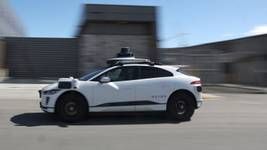In today's rapidly evolving educational landscape, teachers are facing a unique set of challenges when it comes to the literacy and technological proficiency of Generation Z students. Born into a world dominated by technology, Gen Zers have grown up with smartphones, social media, and instant access to information. However, despite their fluency in navigating digital platforms, some educators are finding that these students lack proficiency in basic literary skills and struggle when confronted with technological issues.
An increasingly reported trend online from educators is the declining literacy levels among Gen Z students. It’s been reported that while this generation is adept at consuming bite-sized pieces of information from various online sources, they frequently encounter difficulties with basic academic skills, including reading comprehension, mathematics, critical analysis, and writing proficiency. Teachers report that many students have difficulty understanding complex texts, synthesizing information, and articulating their thoughts effectively in writing. This lack of proficiency in literary skills becomes particularly worrisome as these students move closer to entering the professional realm.
Teachers sound the alarm
The author claims that many of their students cannot:
“Read at grade level. Some come into my classroom at a 3rd/4th grade reading level. There are some students who cannot sound out words”.
“Write a complete sentence. They don't capitalize the first letter of the sentence or the I's. They also don't add punctuation. I have seen a student write a whole page essay without a period”.
“Spell simple words”.
“Add or subtract double-digits. For example, they can't solve 27-13 in their head. They also cannot do it on paper. They need a calculator”.
“Know their multiplication tables”.
Troubleshoot computers.
Many of these assertions find additional support from commenters who claim to be teachers themselves. Discussion continued when the thread was cross-posted to the /r/GenZ subreddit, where additional comments from individuals within that age group validate many of the claims. "I graduated ‘23 and there were many seniors who still couldn’t read aloud. No one in my hs actually cared about learning either, just cheat on everything and use tik-tok in class."
i graduated in 2021 and majority of the people in my english class could not write a grammatically correct sentence or read out loud. it wasn’t everyone, but i knew so many people who wouldn’t and i do now. i have noticed a lot of my younger friends have a lot less reading comprehension. i am in the south, but it definitely varies state to state, and even city to city.
What is responsible for the decline?
The most obvious attribution is the lockdown measures implemented to try and mitigate the spread of COVID-19. The forced isolation and the sudden shift to remote learning disrupted traditional educational routines, depriving students of essential in-person interactions with teachers and peers. The challenges of remote learning, including technological barriers and distractions at home, led to decreased academic engagement and learning outcomes for some students. Additionally, the prolonged absence from physical classrooms also posed challenges in terms of socio-emotional growth, as students missed out on opportunities for collaboration, conflict resolution, and emotional regulation that are typically fostered in face-to-face settings.
Commenter EatPb attributes it to: “Overly standardized public education that forces teachers to get through a certain amount of material at a certain pace with very little flexibility, and pressure to pass kids to the next grade even if they aren’t ready. It’s been a growing problem since the 2000s because schools have to meet certain metrics so they are passing kids to the next grade and then because they aren’t ready for the next grade, they can’t learn the material in that year properly, and then it repeats, and so on, all the way until you get to high school and you have 15 year olds than can’t read.
The pandemic just spiked the problem intensely though. It basically took an issue that develops in kids for years and compounded that years long issue into one year. Kids lost so much learning online.”
The unfortunate conjunction with the rise of AI
As the impacted students transition into the workforce, they will not only face developmental setbacks but also confront an additional challenge presented by the emergence of AI technologies. Recent articles have outlined this challenge citing:
76% of Gen Zers report that they are concerned about losing their jobs to ChatGPT. Most entry-level jobs are seen as launchpads for Gen Z careers - and that’s where AI is moving in. The lower-level launchpad is in jeopardy, as AI technology targets “junior-level jobs”
Anecdotally, as a person who works in Tech as a Software Engineer, I have seen a trend where many companies have reduced or outright eliminated their entry level role positions in favour of only hiring people at the intermediate to senior level.
As AI technology advances, it's increasingly capable of handling tasks that would traditionally fall under entry-level roles in various fields. This trend, coupled with the reported developmental issues in today's youth, further exacerbates the situation.
Conclusion
The intersection of declining literacy levels among Gen Z students and the rise of AI technologies jeopardizing entry-level job roles presents a troubling uncertainty regarding the transition into the workforce. Collaboration between education and industry stakeholders is crucial to devise innovative solutions addressing these challenges. It's essential to equip today's youth with the skills and support they need to excel in an increasingly competitive and technology-driven environment.
















.png%3Fwidth%3D1200%26height%3D630%26fit%3Dcrop%26enable%3Dupscale%26auto%3Dwebp%26tr%3Dq-70%2Ch-150&w=3840&q=80)
%2Fcdn.vox-cdn.com%2Fuploads%2Fchorus_asset%2Ffile%2F25137777%2FSTK115_Reddit_01.jpg%3Ftr%3Dq-70%2Ch-150&w=3840&q=80)